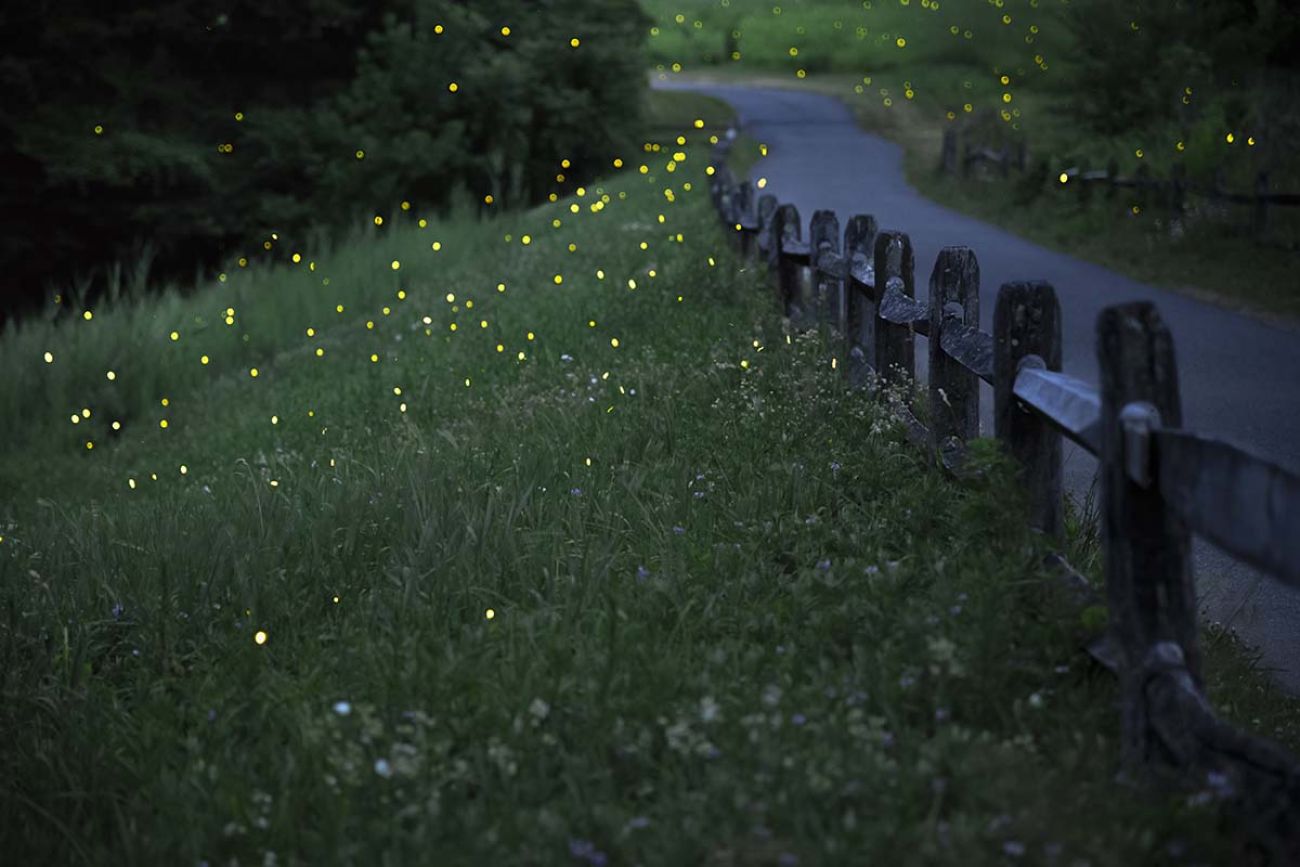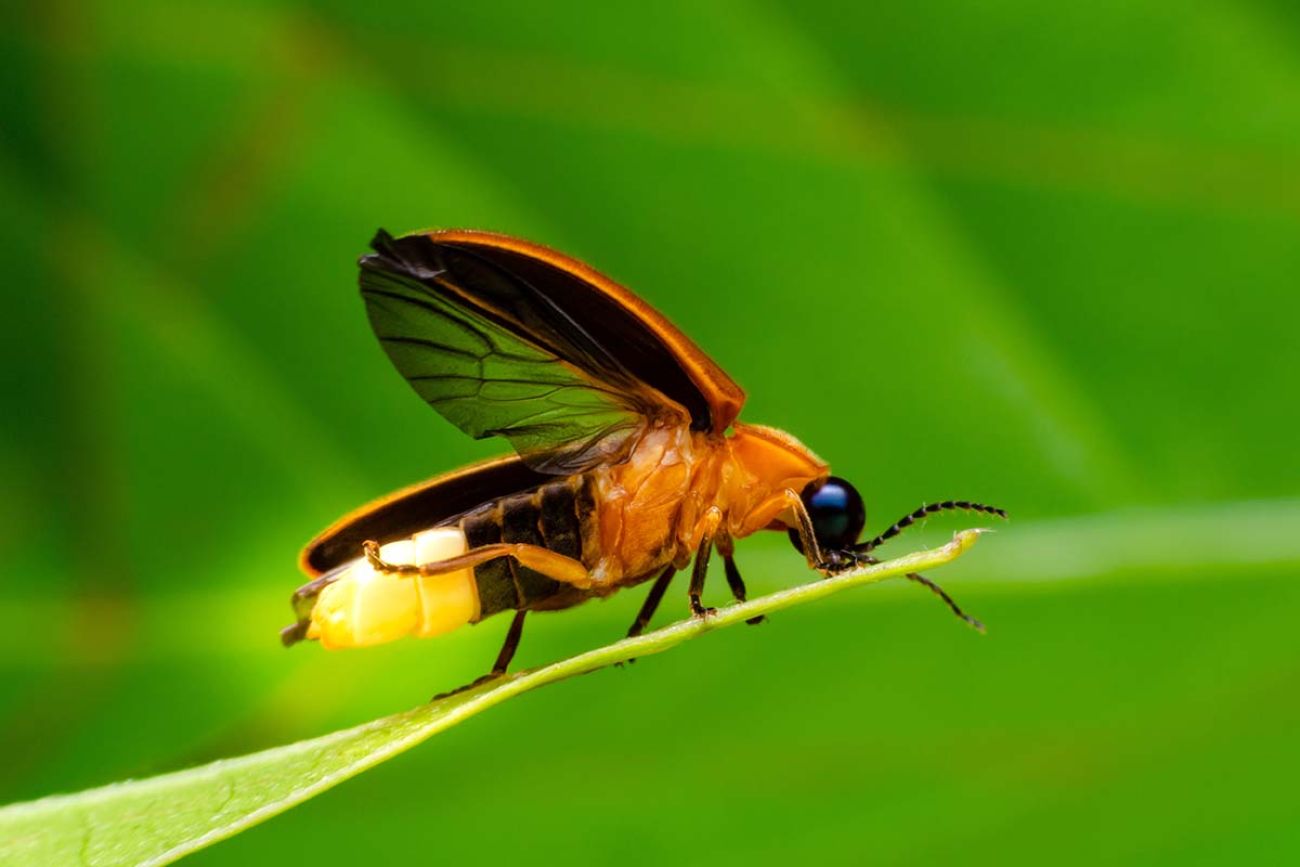Fireflies resurge in Michigan. This year's show is ‘best it’s going to be’

- Michigan is seeing more fireflies than usual this year, thanks to an early spring followed by drought-like conditions.
- Fireflies often gather closer to water and wooded regions.
- Those looking to catch lightning bugs have the best odds around dusk.
On a recent summer night, Charlevoix resident Jennifer Carroll walked outside expecting to see a starry night sky and to her delight saw something else twinkling, as fireflies fluttered through her front yard.
She recalls how, years ago, children would chase lightning bugs across the night sky with nothing but a jar and fascination. At the time, fireflies were a staple of the summer night sky and a memorable part of growing up. Now, with natural fireworks displays like the one she witnessed recently becoming more rare, Carroll wonders “maybe they were taken for granted.”
While the firefly population in the U.S. has declined in recent years, this summer is seeing a resurgence in the glowing beetles, particularly in Michigan.
Related:
- Black flies are swarming in northern Michigan and the U.P.
- Michigan rolls out relief for dairy farmers hurt by bird flu
- The Great Lakes are warming ahead of the start of summer
- Get ready for amorous mayflies, Michigan, and the smelly crunch of love
Michigan families should enjoy them while they can, says Ben Pfeiffer, founder of the nonprofit organization Firefly Conservation & Research, who projects a continued decline in the bugs. The numbers seen in Michigan skies this summer, Pfeiffer warns, are “likely the best that it's ever going to be.”
This summer’s lightning bug explosion is a result of drought-like weather preceded by warmer Spring conditions. This matured larvae into adult fireflies earlier. It’s during the adult stage, which lasts about two months, that fireflies show off their distinctive bioluminescence.

The long-term decrease in the firefly population is caused by an increase in light pollution and pesticide use. Fireflies mate through glow patterns and require a dark environment. Bright white LED light interrupts the fireflies’ ability to see each other. Pesticides used outside, especially in soil, to kill insects like spiders or beetles can harm fireflies as well.
Carroll doesn’t use pesticides at her Charlevoix home, in part to try and see more fireflies. “This time of year, I just don't mow as often, and I definitely don't treat it with chemicals.”
For those concerned about the fireflies, Pfeiffer emphasizes people think about the loss of native plant diversity and tiling, a network of pipes installed underground to remove excess water from farm soil. While this helps farmers produce crops, Pfeiffer warns that “tiling is bad for fireflies in that it drains the water away and reduces native grasses and plants from taking root.”
As for plant diversity, Pfeiffer suggests people “get to know plants in their area and (try) to use those instead of plants from faraway places that could be provided by Home Depot.”
Here’s what you need to know to take advantage of this summer’s backyard light display:
- The best time to see fireflies is about 10-15 minutes after dusk, so if it gets dark around 9 p.m. Pfeiffer recommends going outside at about 8:30 p.m.
- Fireflies are “habitat specific” and grow best by vegetation near a water system, like a river or creek.
- Fireflies use different light patterns to attract mates. Both males and females light up, but males fly higher in the air while females stay closer to the ground, where they watch for the male fireflies’ flickering lights.
- Another reason fireflies glow is to protect themselves from predators and communicate that they are not tasty, or that they are toxic.
Michigan is home to 15 different species of fireflies, like the common Eastern firefly or the little gray firefly.
Michigan Environment Watch
Michigan Environment Watch examines how public policy, industry, and other factors interact with the state’s trove of natural resources.
- See full coverage
- Subscribe
- Share tips and questions with Bridge environment reporter Kelly House
Michigan Environment Watch is made possible by generous financial support from:
Our generous Environment Watch underwriters encourage Bridge Michigan readers to also support civic journalism by becoming Bridge members. Please consider joining today.
See what new members are saying about why they donated to Bridge Michigan:
- “In order for this information to be accurate and unbiased it must be underwritten by its readers, not by special interests.” - Larry S.
- “Not many other media sources report on the topics Bridge does.” - Susan B.
- “Your journalism is outstanding and rare these days.” - Mark S.
If you want to ensure the future of nonpartisan, nonprofit Michigan journalism, please become a member today. You, too, will be asked why you donated and maybe we'll feature your quote next time!






